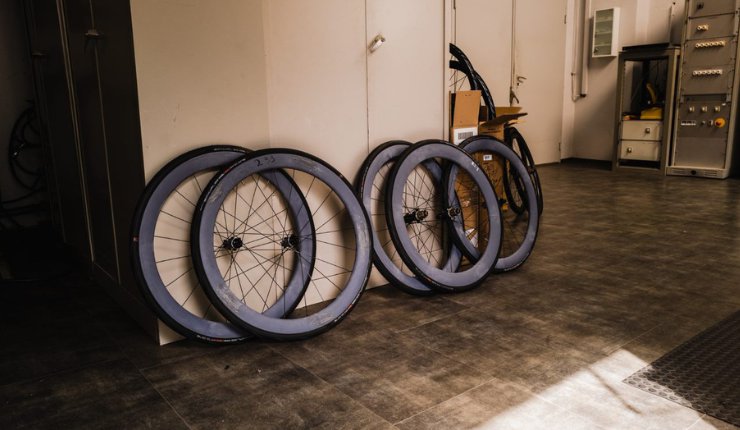
As cycling is increasingly embraced for commuting to work, exploring nature, working out or racing, it is important for bike manufacturers to keep up with trends and technological developments. TCT spoke to Formlabs to learn how two companies, Hunt Bike Wheels and Privateer Bikes, are using 3D printing technology and materials for in the prototyping stage of creating bike parts. Both companies are owned by The Rider Firm, a UK-based e-retailer that secured seven figure funding from Santander in 2022.
Hunt Bike Wheels has been using the Form 3L printer with the Grey Pro Resin to 3D print prototype wheels. The company 3D prints the rims and then builds them with standard components such as spokes and hubs. Tyres are then put on the rims and inflated to 3.5 bars pressure to test in a wind tunnel. The testing results are then analysed, with the company iterating different designs and concepts with 3D printing until the perfect wheel profile is found, which will later be manufactured with traditional carbon fibre methods.
Privateer Bikes 3D prints entire bike frames, which enables them to test designs for fit, assembly, and clearances. The company also uses Formlabs 3D printing to create functional prototypes of frame protectors that prevent the chain from potentially damaging bike parts.
Speaking about how creating prototypes through 3D printing is key to improving the performance of bikes, Balázs Kisgergely, Content Marketing Lead at Formlabs told TCT: “By 3D printing prototypes in-house, Hunt Bike Wheels and Privateer Bikes can save both money and time, enabling them to focus on designing the best wheel profiles that can improve a bikes drag, crosswind handling, and speed. 3D printing is also key to making their products faster by eliminating wait times for outsourced prototypes. Hunt Bike Wheels can iterate small changes easily in-house to bring their products to market sooner, and the lowered production time and cost enable them to sell their high performance parts at an accessible price, bringing high quality bikes to customers faster and cheaper.”
Formlabs says that the Form 3L was beneficial to Hunt Bike Wheels and Privateer Bikes as the 33.5 x 20 x 30 cm build volume made it possible to print largeformat objects such as bike wheels and frames. The company says that Hunt Bike Wheels’ engineers can 3D print prototypes in-house in five or six sections, saving 90% of the price of outsourcing the same designs.
The Grey Pro Resin is used by Hunt Bike Wheels as it enables the prototypes to be complex and accurate geometrically while being strong enough to be fitted with racing tires, inflated, and tested in a wind tunnel according to Formlabs. The prototypes made with Grey Pro Resin can be filled with up to three and a half bars of pressure and take around 65% of the tension of a carbon fibre wheelset. Privateer Bikes uses Grey Pro resin to prototype its bike frames due to the durability of the material, as well as its ability to withstand roughness while handling the prints.
Kisgergely told TCT about the time and cost saving benefits allowed by using the Form 3L for these applications: “Before Formlabs, Hunt Bike Wheels outsourced all prototypes, with each outsourced wheel costing 2,500 USD. The Form 3L cut costs down by 90%, to bring prototypes to around 250 USD each. In addition to the lowered costs, Hunt Bike Wheels can run Form 3L printers through the night to have new prototypes ready daily, rather than waiting two to three months for outsourced designs. Before 3D printing, Privateer Bikes was not able to prototype their frame protectors as the tooling for this part is expensive and must be custom made. Without prototyping first, Privateer Bikes would send the design to be manufactured, costing 3,000 to 4,000 USD and taking three to four months. Being able to 3D print prototypes has saved Privateer Bikes six months of time and around 4,000 to 5,000 USD per prototype.”
Kisgergely also told TCT about the potential for Formlabs 3D printing technology and materials to be used for end use parts in bicycle manufacturing: “With Formlabs’ ever-expanding library of 45 unique materials, new ways to use 3D printing for end-use parts are emerging. For example, Silicone 40A Resin, the first accessible pure silicone 3D printing material, and TPU 95A Powder for SLS printing, could be used to print handlebar grips, seat covers, or other elastic bike parts made to be stretched, flexed, and compressed. 3D printing these parts in house would eliminate traditional labour-intensive moulding and casting processes.”




